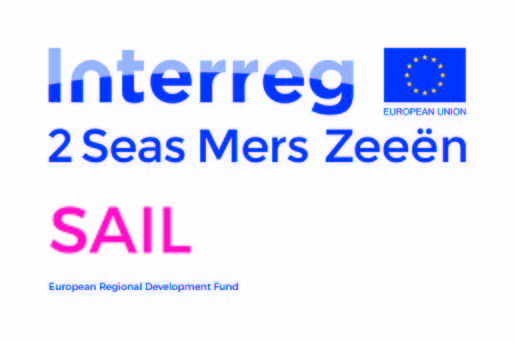SAIL
Common challenge
Coastal regions in the 2 Seas Area have to deal with specific challenges in relation to ageing as they are confronted with a particular mix of ageing people. This not only includes local elderly, but also the influx of ageing newcomers and visitors of an increasing average age. As this population puts pressure on health and social care systems, it is essential to enable them to stay active and independent for longer, to improve their wellbeing and quality of life to reduce costs and pressures on care systems.
Overall objective
The SAIL overall objective is to stimulate active ageing and longer independent living by identifying new ways of helping people remain independent for longer, more self-reliant and less dependent on traditional health care and social care services. Different from the current, mono disciplinary approach, SAIL will introduce a social innovation process of co-creation to identify new partnerships and opportunities, especially in unlikely combinations between different sectors, to develop new, sustainable business and service models that encourage active ageing.
Main outputs
10 pilots in the partner regions under two themes (movement & wellbeing), created through social innovation and with the active participation of elderly and service providers (incl business, local authorities and health care providers), based on specific needs of the elderly and by looking at local potential in the region. Through the pilot activities the elderly will become more active, healthy and independent but also coached in social innovation processes, contributing to an increased independence and a durable process.
The joint creation and monitoring of the pilots and the resulting feasibility analysis will ensure the robustness of the solutions, i.e. their contribution to healthy ageing and achieving viable business and service models but also pave the way for wider-scale implementation.
Cross Border approach
The joint development of the pilots: in WP3 project partners will define jointly how they set-up and implement the pilots. Although the actual implementation will take place locally, the entire process is informed by the joint work of the partners. Peer reviews and site visits will deepen this process (WP1, 2, 3).
The monitoring and joint methodology for evaluation is putting the individual experiences in a cross-border perspective. In particular the feasibility study will look specifically at elements how to pave the way for wide scale implementation across the 2 Seas area.
The transfer of the outputs and the knowledge into follower communities and across networks will put particular emphasis on the cross-border elements.
Finally, the project is built already on a distinct cross-border element by using and transferring the knowledge that has been built-up in SUSTRIP (HZ) and Destination FeelGood (BU).


